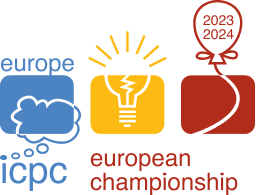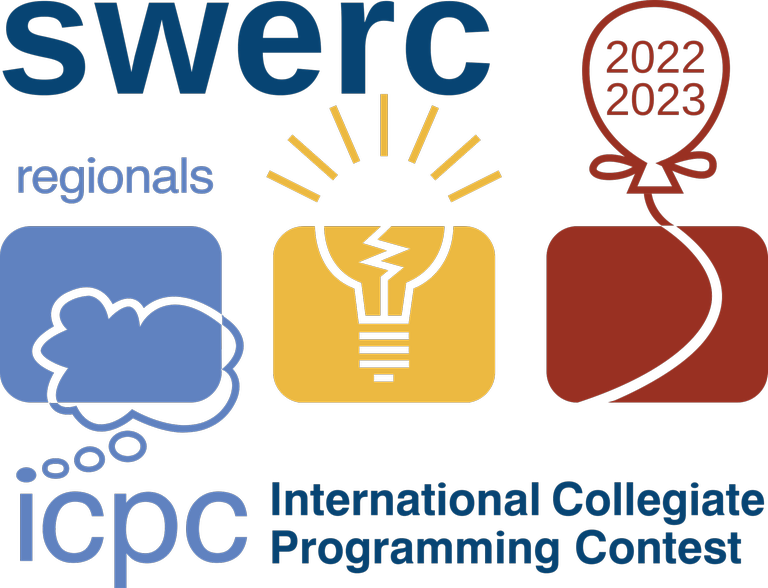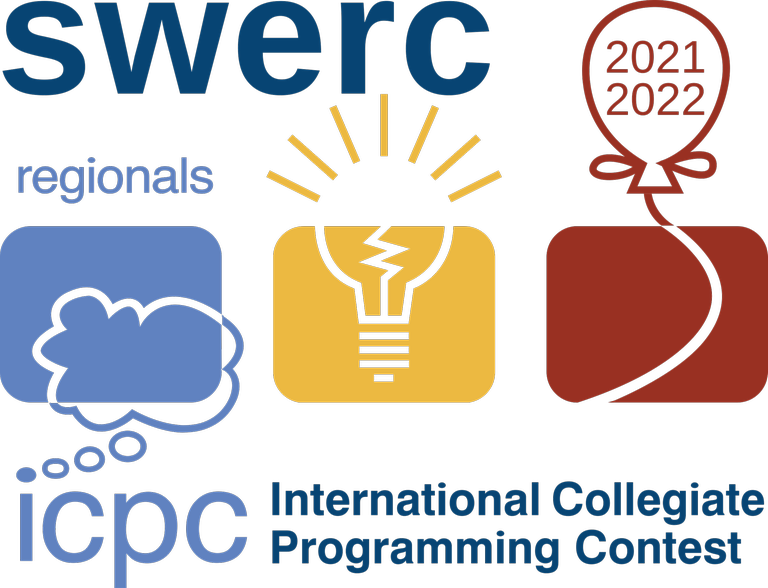
The European Championship 2024 will take place on the 24th of March in Prague. The top teams from the European ICPC regionals CERC, NWERC, SEERC, SWERC will compete for the title of European champions. It is the first edition of this ICPC super-regional.
The mirror contest European Championship 2024 - Online Mirror (Unrated, ICPC Rules, Teams Preferred) will be held on Codeforces at Mar/24/2024 13:00 (Moscow time) and will last 5 hours.
The mirror contest will contain the same problems as the official competition.
I am the chief judge for the competition and I want to thank:
- The amazing set of judges who proposed and prepared the problems: antontrygubO_o, bicsi, Giove, Martin Kacer, MZuenni, Petr.
- Our beloved tester ksun48 who showed us that our perception of the difficulties was not exactly spot on...
- Our beloved proofreader Philae for proofreading the statements.
- Everyone involved in the organization of EUC. In particular our director Boba Mannová, and Fernando Silva, Václav Herman, Ondřej Votava, Jan Kubr, Jan Baier.
- The developers of DOMjudge, the contest system used in the official contest.
- MikeMirzayanov for Polygon (that we used to prepare the problems) and for letting us host the mirror on Codeforces.
I invite you to participate in the contest and I hope that you will like the problems.
On the difficulty
The contest features problems with difficulties from div1A to div1E. It should be enjoyable for many, and challenging even for the strongest teams in the world.
Rules
- The contest is unrated, so your codeforces rating will not be affected.
- The scoring is ICPC-style: teams are first sorted by number of problems solved, then the time-penalty is used as a tie-break. An incorrect submission gives a 20 minutes penalty.
- We encourage participation as a team.
- If you are participating in a team, we encourage you to use only one computer for coding the solutions (as in an ICPC contest). Regarding using templates, googling, and copy-pasting code: feel free to do it.
UPDATE: We hope you liked the problems!
Congratulations to the winners, and especially to the first two teams for AK:
- dw my perception of the difficulties was not exactly spot on: tourist, ecnerwala.
- xinyoudui: PubabaOnO, orzdevinwang, jqdai0815
- MIPT: Yolki-palki: Tikhon228, Pechalka, Kapt
- Captain take me!: crazy_sea, A_zjzj, 275307894a
- Beyond Three Wolves: Kevin114514, CrTsIr, Atomic-Jellyfish
- HSE: FFTilted: Kirill22, Ormlis
We uploaded the editorial of the contest.
Tune in to ICPCLive to see the closing ceremony and find out how the onsite teams did at 18:00 CET!
UPDATE 2:
Congratulations to the medalists of the onsite contest:
- Warsaw Eagles 2024 — University of Warsaw (the only team with 9 problems)
- Zagreb 1 — University of Zagreb
- KNU_0_GB_RAM — Taras Shevchenko National University of Kyiv
- ELTE 1 — Eötvös Loránd University
- UWr 1 — University of Wroclaw
- ENS Ulm 1 — École Normale Supérieure de Paris
















